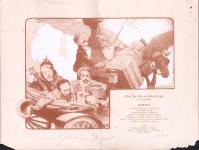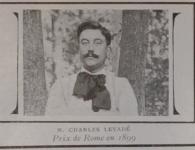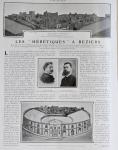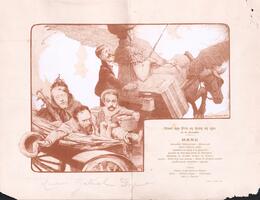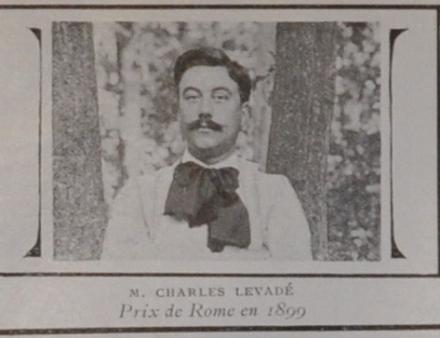
Charles LEVADÉ
1869 - 1948
Composer
Born in Paris, Charles Levadé entered the Conservatoire at the age of thirteen. He studied there with Albert Lavignac (solfège), Charles-Wilfrid de Bériot and Georges Mathias (piano), Auguste Bazille (accompaniment), Théodore Dubois (harmony) and André Gédalge (counterpoint and fugue). He began his composition studies with Jules Massenet, whose departure in 1896 led him to complete his training with Charles Lenepveu. By the time he won the first Grand Prix de Rome in 1899 with his cantata Callirhoé, he had already made his theatre debut with Cœur de magots, a Japanese pantomime premiered at the Théâtre de La Bodinière in 1895, followed by incidental music to Georges Courteline’s play Hortense, couche-toi! in 1897. While Levadé subsequently wrote piano pieces, many mélodies and chansons, some symphonic music and a few religious works, he devoted himself mainly to the theatre. In 1905, his tragédie lyrique Les Hérétiques was premiered in Béziers. Three comédies lyriques were inspired by famous writers: Anatole France (La Rôtisserie de la reine Pédauque, 1920), Balzac (La Peau de chagrin, a great success at the Opéra-Comique in 1929), and Théophile Gautier (Le Capitaine Fracasse, 1929). In its review of La Peau de chagrin, Le Ménestrel praised a “score that is distinguished by its clarity, its lyrical melodies full of emotion and charm, and the exceptional quality of an orchestration for the theatre that never covers the voices and can serve as a model of taste, elegance and tact”. Levadé died in Cabourg in 1948, in his in-laws’ house.

